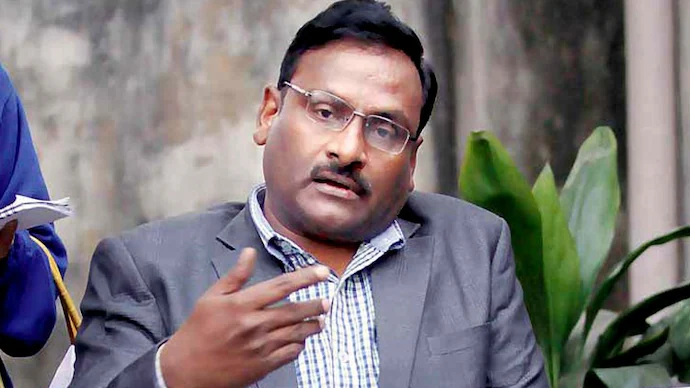Abhijay Raj Vaish, Pune
Former Delhi University Professor G.N. Saibaba was acquitted by the Nagpur bench of the Bombay High Court on March 5 after being convicted of alleged links with Maoist activities in March 2017. Saibaba, a disabled academic, along with four others, was acquitted by a court in Maharashtra in 2022, but the Supreme Court had asked for a re-hearing of the case.
The former DU professor, who is 90 percent disabled, along with four others, including Mahesh Tirki, Hem Keshavdatta Mishra, Pandu Narote, and Prashant Rahi, were sentenced to life imprisonment under the Unlawful Activities (Prevention) Act (UAPA), with Vijay Tirki being sentenced to 10 years in prison as this was his first offence. All of the accused were arrested by the Gadchiroli police in Maharashtra between 2013 and 2014 for allegedly being members of the Communist Party of India (Maoist). They were convicted by a local court, with the judge stating that “even though he is physically handicapped, he is mentally fit,” referring to Saibaba. The Nagpur bench has acquitted them for the second time after being asked to re-examine the facts thoroughly by the Apex Court. Pandu Narote, who was also implicated in the case, died due to a delay in treatment while serving his sentence in August 2022.
Saibaba, who was the prime accused in the case, was claimed to possess 247 incriminating pages in the electronic devices extracted from his residence. The earlier conviction was based on the statements of 22 witnesses, of whom 21 were police witnesses.
A division bench of justices Valmiki SA Menezes and Vinay G Joshi considered appeals by the accused in 2017 before delivering their judgement. Another bench of justices overturned the convictions ruling for the release of all convicts in October 2022.
The bench delivering the verdict claimed that the prosecution failed to establish any substantial proof to incriminate the accused and deemed the convictions under UAPA to be null and void while allowing appeals against the same. The judgement is likely to be challenged by the prosecution in the Supreme Court.
